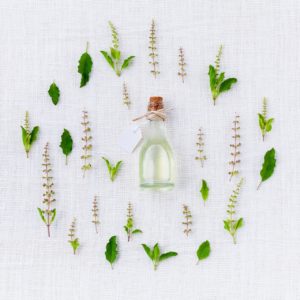What is an herb?
An herb is a plant, any useful plant, which the stem and leaves are used for medicine, for their scent and/or flavor. There are plants where we also use the bark and roots, usually categorized as spices. Herbs have been used to aid in sickness, flavor our food, beautify our homes and gardens, for cosmetic, hygiene and skin/hair care. There is not much definition about herbs but much to say about what it can do, with a definite increase in use and awareness alongside health and wellness.
Herbs have been used all throughout history, every generation, different cultures. Consciously or unconsciously, we use herbs every single day. From the moment we wake up, like drinking coffee, to laying to rest. We use herbs in various ways for food, medicine, flavoring food, perfumery or cosmetics, preserving, embalming, crafting and much more.
Why use herbs?
Plants contain chemical properties that have been understood and studied throughout history. Some drugs that we use have the same attributes with plant medicine, just no fancy wrapping or its found in your backyard. In fact, foraging and wildcrafting is better than buying ” organic” food. Wild plants and weeds are resilient, sustainable, free and nutritious.

Parts used in herbs
Every part of the plant is valuable. Leaves are the most common part used for food, flavor, infusion and extracts. Stems are a separate part but often utilized the same way as the leaves. Barks are traditionally made into medicine by native American Indians, such as white oak bark, or cinnamon from India and China. Flowers are the preferred method by most people for its aesthetic purposes, scent, flavor and fragrance. Nuts and seeds are popular in the culinary and cosmetic world, made into spices and cosmetic butters. Berries made into wines and syrups have medicinal benefits that most people enjoy. Roots and rhizomes are not as popular, though one would know horseradish root as a condiment and as an herb to open up airways. Garlic and onion bulbs have both culinary and medicinal benefits.
Slowly, urbanization has directed our attention to the convenience of going to grocery stores and pharmacies. We have forgotten the art and power of growing our own food and medicine. We have lost the connection of watching in awe how a seed becomes a plant, smelling the mint as you pass by, touching and harvesting chamomile flowers with the bees and opening your cupboard pharmacy for a homemade extract.
Every herb has a purpose. Herbs have always been here, not forgotten. They are there when we need them. There is basically an herb for anything. We now see them used in drinks, aromatherapy, hydrosols, medicines, crafts. From coffee to toothpaste, soaps and creams, drinks to spices…. possibilities are endless and exciting. The world of herbs is fascinating, vast and timeless. To recognize and respect their value is just the beginning of a beautiful relationship.